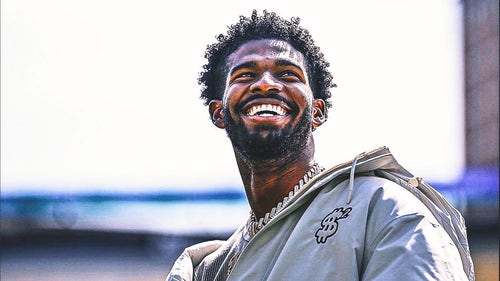
Baseball 'neighborhood' a lot smaller these days
J.J. Hardy remembers a time when he didn't have to get all that close to second base before starting to turn a double play.
All the Twins shortstop had to do was ``get in the neighborhood'' of the bag to record the first out, hence the nickname ``the neighborhood play.''
``I feel like there are some shortstops and second basemen that do that,'' Hardy said. ``I might have done it a couple times. Not on purpose. I always try to be on the bag, but maybe there's a time I might be a little bit quick.''
Thanks to the influx of high-definition cameras with zoom lenses in ballparks across the major leagues, the neighborhood is a whole lot smaller these days. Umpires, players and managers say they are seeing a tighter enforcement of the rule that requires infielders to step on the bag to get the out.
``It's technology,'' umpiring supervisor Randy Marsh said. ``Years ago there were what, three or four cameras at a game? There are so many more now. These guys are under incredible scrutiny and they do a great job. There's a camera looking over their shoulder on every call. They know it.''
Middle infielders argue that the ``neighborhood'' allowance protects them from getting hurt on a take-out slide or being spiked while applying a tag.
For years, many umpires acquiesced, granting outs even as infielders occasionally didn't touch the base or make the tag. Fans seated in the stands or watching at home from wide camera angles never knew the difference.
Today, HD cameras are everywhere, bringing with them the crisp, clear, slow-motion zoom replays that make it very difficult for umpires to continue to grant that leeway.
``They'll say, 'You've got to give him that,''' veteran umpire Tim Tschida said. ``Yeah? Well what do you have to give me?''
The affect that computerized grading systems have had on the strike zone has been well documented. But it's becoming more apparent that technology's influence is trickling down in more subtle, yet substantial, ways.
``I think (umpires) have gotten a little bit more conscious about that because they know they get scrutinized over and over and over after a game,'' Indians manager Manny Acta said. ``If the ball beats you and you put a phantom tag on it like you have done in the past, that has disappeared because the guys know that with the technology nowadays, it can be shown over and over and over all night and guys don't want to be exposed to that.''
Just ask Twins second baseman Orlando Hudson.
During a game against the Royals last week, Hudson took a throw from Joe Mauer that easily beat a stealing Alberto Callaspo. Hudson swept his glove through early and missed the sliding Callaspo's leg, the kind of ``phantom tag'' that for years may have been called an out.
But umpire Chad Fairchild correctly ruled that Hudson missed the tag and Callaspo was called safe.
``The game is hard enough and it's so fast and the umpires have to try to make the best call that they can,'' Hudson said. ``There's a lot of coaches on them, fans on them. Baseball looks at it. 'SportsCenter' reshows it. So there's a lot they have to go through to make the best call they can.''
Later in the same series, Royals shortstop Yuniesky Betancourt took a throw to start the turn for a double play. The catch was clean and the throw beat Twins baserunner Michael Cuddyer by a mile. But Betancourt never touched the base, and Cuddyer was called safe.
``They're trying to get guys a little bit closer, but yet you don't want to get anybody hurt,'' Indians second baseman Mark Grudzielanek said. ``So there's good and bad to both of those things.''
Again, it was the correct call, but possibly one that would have been called differently not so long ago.
``That would have been an out in the past,'' Cuddyer said.
Royals manager Trey Hillman argued, but to no avail.
``The game's changed a little bit,'' Hillman said. ``With all the angles, they've got the box up there for the strike zone. They've got every angle on the bases. ... (The ump) wasn't out there creating stuff. It sure puts a middle infielder in harm's way. I wish they'd give him the location on the double play. Those guys are coming in pretty hard.''
Cuddyer, for one, is pleased with the development.
``I understand the neighborhood play. But the name of the game is touching the bags,'' Cuddyer said. ``It's not like I can get close to hitting a home run and it counts as a home run. You have to hit a home run.
``That goes for any infielder, whether it's our team or their team, I feel like you have to touch the bag. That gives a runner a chance to break up the double play.''
Hardy said he has no complaints about the increased enforcement, but teammate Brendan Harris said he wouldn't mind a little extra room to work.
``You're supposed to stick your nose in there, but every now and then you have Cuddy or Marlon Byrd barreling down on you,'' Harris said. ``If you know what's good for you, you'll get out of the way.''



